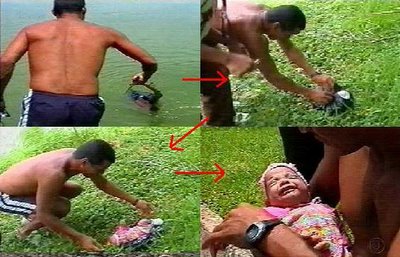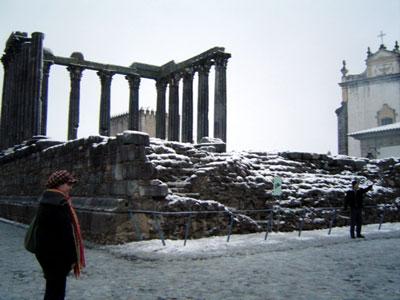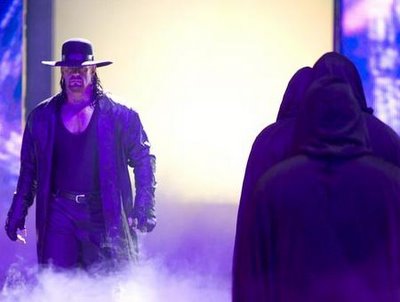
“Che Guevara, who did so much (or was it so little?) to destroy capitalism, is now a quintessential capitalist brand. His likeness adorns mugs, hoodies, lighters, key chains, wallets, baseball caps, toques, bandannas, tank tops, club shirts, couture bags, denim jeans, herbal tea, and of course those omnipresent T-shirts with the photograph, taken by Alberto Korda, of the socialist heartthrob in his beret during the early years of the revolution, as Che happened to walk into the photographer’s viewfinder—and into the image that, thirty-eight years after his death, is still the logo of revolutionary (or is it capitalist?) chic. Sean O’Hagan claimed in The Observer that there is even a soap powder with the slogan “Che washes whiter.”
The metamorphosis of Che Guevara into a capitalist brand is not new, but the brand has been enjoying a revival of late—an especially remarkable revival, since it comes years after the political and ideological collapse of all that Guevara represented. This windfall is owed substantially to The Motorcycle Diaries, the film produced by Robert Redford and directed by Walter Salles. (It is one of three major motion pictures on Che either made or in the process of being made in the last two years; the other two have been directed by Josh Evans and Steven Soderbergh.) Beautifully shot against landscapes that have clearly eluded the eroding effects of polluting capitalism, the film shows the young man on a voyage of self-discovery as his budding social conscience encounters social and economic exploitation—laying the ground for a New Wave re-invention of the man whom Sartre once called the most complete human being of our era.
It is customary for followers of a cult not to know the real life story of their hero, the historical truth. (Many Rastafarians would renounce Haile Selassie if they had any notion of who he really was.) It is not surprising that Guevara’s contemporary followers, his new post-communist admirers, also delude themselves by clinging to a myth—except the young Argentines who have come up with an expression that rhymes perfectly in Spanish: “Tengo una remera del Che y no sé por qué,” or “I have a Che T-shirt and I don’t know why.”
(…)
The manifestations of the new cult of Che are everywhere. Once again the myth is firing up people whose causes for the most part represent the exact opposite of what Guevara was.
(…)
In April 1967, speaking from experience, he summed up his homicidal idea of justice in his “Message to the Tricontinental”: “hatred as an element of struggle; unbending hatred for the enemy, which pushes a human being beyond his natural limitations, making him into an effective, violent, selective, and cold-blooded killing machine.” His earlier writings are also peppered with this rhetorical and ideological violence. Although his former girlfriend Chichina Ferreyra doubts that the original version of the diaries of his motorcycle trip contains the observation that “I feel my nostrils dilate savoring the acrid smell of gunpowder and blood of the enemy,” Guevara did share with Granado at that very young age this exclamation: “Revolution without firing a shot? You’re crazy.” At other times the young bohemian seemed unable to distinguish between the levity of death as a spectacle and the tragedy of a revolution’s victims. In a letter to his mother in 1954, written in Guatemala, where he witnessed the overthrow of the revolutionary government of Jacobo Arbenz, he wrote: “It was all a lot of fun, what with the bombs, speeches, and other distractions to break the monotony I was living in.”
An earlier letter to his former girlfriend Tita Infante had observed that “if there had been some executions, the government would have maintained the capacity to return the blows.” It is hardly a surprise that during the armed struggle against Batista, and then after the triumphant entry into Havana, Guevara murdered or oversaw the executions in summary trials of scores of people—proven enemies, suspected enemies, and those who happened to be in the wrong place at the wrong time
(…)
If in doubt, kill him” were Che’s instructions. On the eve of victory, according to Costa, Che ordered the execution of a couple dozen people in Santa Clara, in central Cuba, where his column had gone as part of a final assault on the island. Some of them were shot in a hotel, as Marcelo Fernándes-Zayas, another former revolutionary who later became a journalist, has written—adding that among those executed, known as casquitos, were peasants who had joined the army simply to escape unemployment.
But the “cold-blooded killing machine” did not show the full extent of his rigor until, immediately after the collapse of the Batista regime, Castro put him in charge of La Cabaña prison. San Carlos de La Cabaña was a stone fortress used to defend Havana against English pirates in the eighteenth century; later it became a military barracks. In a manner chillingly reminiscent of Lavrenti Beria, Guevara presided during the first half of 1959 over one of the darkest periods of the revolution. José Vilasuso, a lawyer and a professor at Universidad Interamericana de Bayamón in Puerto Rico, who belonged to the body in charge of the summary judicial process at La Cabaña, told me recently that:
Che was in charge of the Comisión Depuradora. The process followed the law of the Sierra: there was a military court and Che’s guidelines to us were that we should act with conviction, meaning that they were all murderers and the revolutionary way to proceed was to be implacable. My direct superior was Miguel Duque Estrada. My duty was to legalize the files before they were sent on to the Ministry. Executions took place from Monday to Friday, in the middle of the night, just after the sentence was given and automatically confirmed by the appellate body. On the most gruesome night I remember, seven men were executed.
(…)
How many people were killed at La Cabaña? Pedro Corzo offers a figure of some two hundred, similar to that given by Armando Lago, a retired economics professor who has compiled a list of 179 names as part of an eight-year study on executions in Cuba. Vilasuso told me that four hundred people were executed between January and the end of June in 1959 (at which point Che ceased to be in charge of La Cabaña). Secret cables sent by the American Embassy in Havana to the State Department in Washington spoke of “over 500.” According to Jorge Castañeda, one of Guevara’s biographers, a Basque Catholic sympathetic to the revolution, the late Father Iñaki de Aspiazú, spoke of seven hundred victims. Félix Rodríguez, a CIA agent who was part of the team in charge of the hunt for Guevara in Bolivia, told me that he confronted Che after his capture about “the two thousand or so” executions for which he was responsible during his lifetime. “He said they were all CIA agents and did not address the figure,” Rodríguez recalls. The higher figures may include executions that took place in the months after Che ceased to be in charge of the prison.
(…)
It was not long before volunteer work became a little less voluntary: the first forced labor camp, Guanahacabibes, was set up in western Cuba at the end of 1960. This is how Che explained the function performed by this method of confinement: “[We] only send to Guanahacabibes those doubtful cases where we are not sure people should go to jail ... people who have committed crimes against revolutionary morals, to a lesser or greater degree.... It is hard labor, not brute labor, rather the working conditions there are hard.”
This camp was the precursor to the eventual systematic confinement, starting in 1965 in the province of Camagüey, of dissidents, homosexuals, AIDS victims, Catholics, Jehovah’s Witnesses, Afro-Cuban priests, and other such scum, under the banner of Unidades Militares de Ayuda a la Producción, or Military Units to Help Production. Herded into buses and trucks, the “unfit” would be transported at gunpoint into concentration camps organized on the Guanahacabibes mold. Some would never return; others would be raped, beaten, or mutilated; and most would be traumatized for life, as Néstor Almendros’s wrenching documentary Improper Conduct showed the world a couple of decades ago.
(…)
Che was a somewhat unlikely candidate for ideological purity, given his bohemian spirit, but during the years of training in Mexico and in the ensuing period of armed struggle in Cuba he emerged as the communist ideologue infatuated with the Soviet Union, much to the discomfort of Castro and others who were essentially opportunists using whatever means were necessary to gain power.
(…)
According to Philippe Gavi’s biography of Guevara, the revolutionary had bragged that “this country is willing to risk everything in an atomic war of unimaginable destructiveness to defend a principle.” Guevara told a British communist daily: “If the rockets had remained, we would have used them all and directed them against the very heart of the United States, including New York, in our defense against aggression.”
(…)
In the last few decades of the nineteenth century, Argentina had the second-highest growth rate in the world. By the 1890s, the real income of Argentine workers was greater than that of Swiss, German, and French workers. By 1928, that country had the twelfth-highest per capita GDP in the world. That achievement, which later generations would ruin, was in large measure due to Juan Bautista Alberdi.
Like Guevara, Alberdi liked to travel: he walked through the pampas and deserts from north to south at the age of fourteen, all the way to Buenos Aires. Like Guevara, Alberdi opposed a tyrant, Juan Manuel Rosas. Like Guevara, Alberdi got a chance to influence a revolutionary leader in power—Justo José de Urquiza, who toppled Rosas in 1852. And like Guevara, Alberdi represented the new government on world tours, and died abroad. But unlike the old and new darling of the left, Alberdi never killed a fly. His book, Bases y puntos de partida para la organización de la República Argentina, was the foundation of the Constitution of 1853 that limited government, opened trade, encouraged immigration, and secured property rights, thereby inaugurating a seventy-year period of astonishing prosperity. He did not meddle in the affairs of other nations, opposing his country’s war against Paraguay. His likeness does not adorn Mike Tyson’s abdomen.”
Alvaro Vargas Llosa is a Senior Fellow and director of The Center on Global Prosperity at the Independent Institute. He is the author of Liberty for Latin America.
Led (Kill Yr. Idols)





































